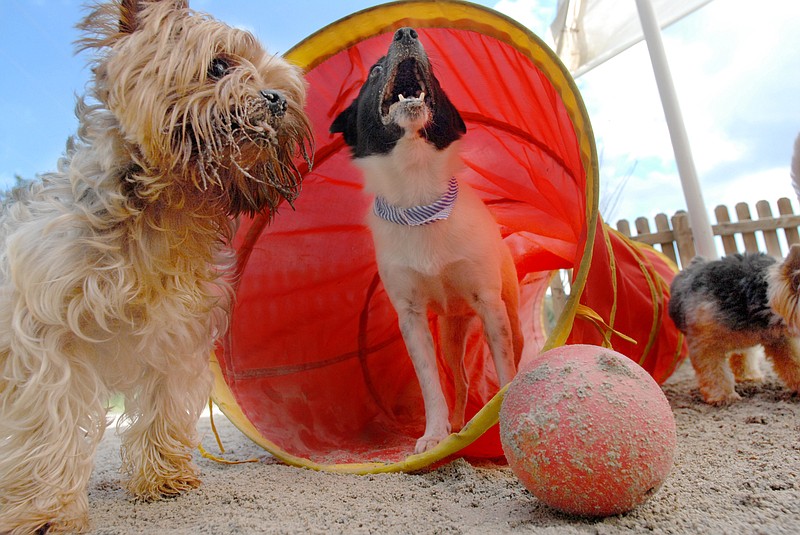The Virology Laboratory at the University of Tennessee College of Veterinary Medicine has confirmed two cases of influenza in dogs in the Knoxville area.
Testing will be done to determine if it is H3N2 influenza, which was recently found in Georgia and Florida, according to a UT new release.
"We know it is an influenza from a dog," says Dr. Melissa Kennedy, director of the virology laboratory at the veterinary college. "The dog was at a boarding facility in the Knoxville region that housed a dog that had been exposed to dogs from a show in Perry, Georgia where a confirmed outbreak has occurred."
Owners of dogs boarded at the facility have been notified and are isolating their dogs, according to the news release.
H3N2 influenza in dogs was first reported in Korea in 2007 originating in birds. It was then documented in China as far back as 2006. It emerged in the U.S. in 2015 in the Chicago area and has since been documented across the country.
Symptoms include coughing, sneezing, nasal discharge and fever. Canine influenza is usually mild and lasts about two to three weeks, and death from the illness is rare. A more severe form with pneumonia may occur, but is uncommon.
Situations that bring dogs together increase the risk for exposure. Puppies, elderly dogs and dogs with other diseases are most susceptible to disease. Vaccines are available.
Transmission of most strains of canine influenza from dog to dog is spread by respiratory secretions; coughing, dog-to-dog contact, or indirect contact, such as animal caretakers or contaminated objects like bowls may transmit the virus. The virus is easily killed in the environment with disinfectants.
Kennedy recommends vaccination against canine influenza prior to dogs being boarded or participating in shows or competition.
Dogs that may have been exposed to the virus should be isolated from other dogs for at least three weeks.
There has been no documented transmission of H3N2 influenza to humans, but Kennedy recommends limited close contact with any species that has any influenza virus.
UT College of Veterinary Medicine offers testing for the virus. Submission guidelines can be found here.
For more information about Canine Influenza, visit the American Veterinary Medical Association website.
